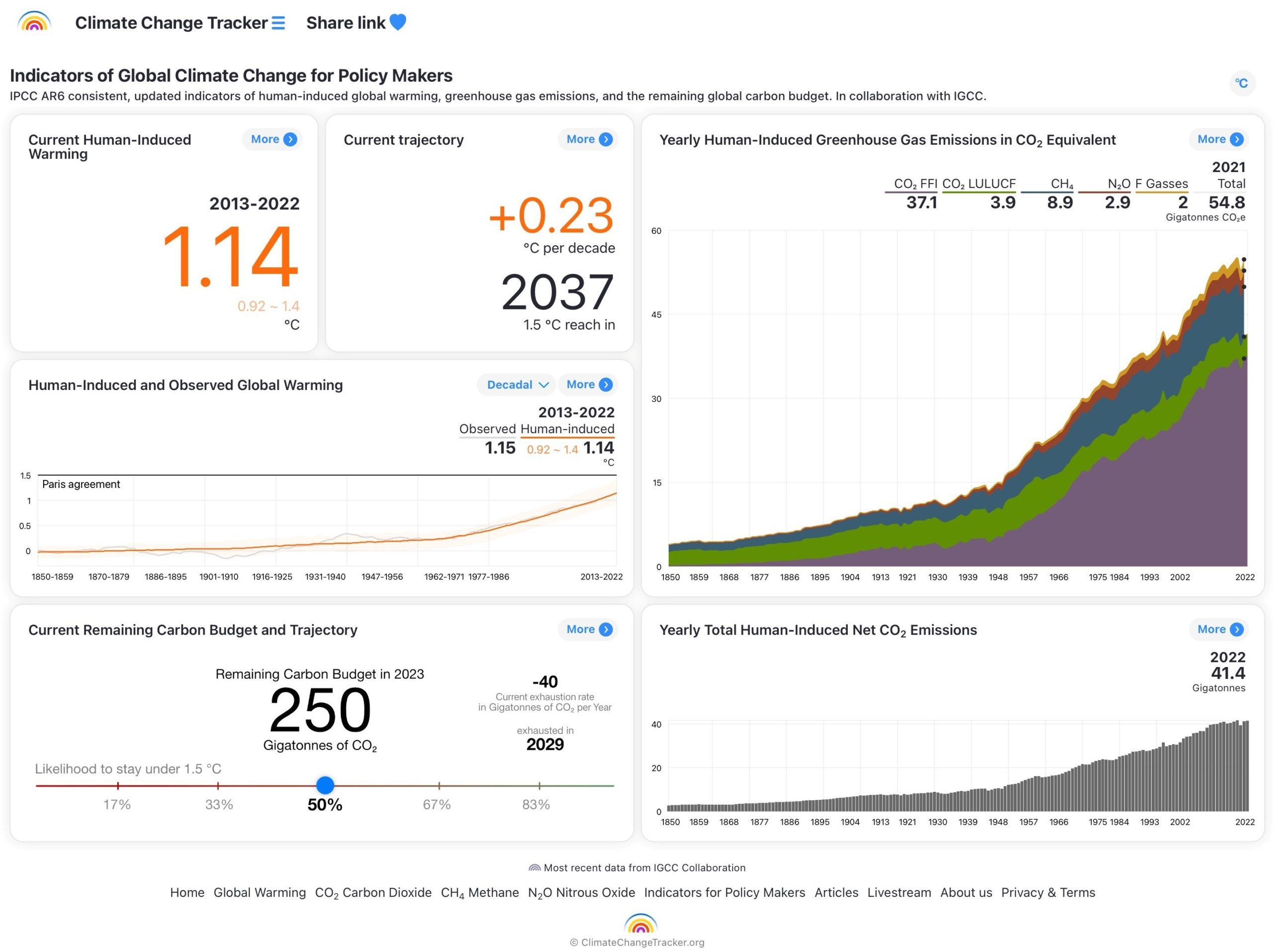
Human-caused global warming has continued to increase at an “unprecedented rate” since the last major IPCC assessment of the climate system published two years ago: the details in a publication by an international team of 50 leading climate scientists, including CMCC’s Anna Pirani.
Earth System Science Data, part of the Copernicus Publications family of journals, has published an update to IPCC’s most recent assessment of the physical basis of climate change (2021): Indicators of Global Climate Change (IGCC) 2022: annual update of large-scale indicators of the state of the climate system and human influence. An international group of researchers, including Anna Pirani of CMCC, has developed this update of key indicators of the state of the climate system that builds directly on the IPCC report in a consistent and transparent manner, with the related data and code made publicly available. The calculations build directly on the methods assessed in the IPCC 2021 report.
The authoritative source of scientific information on the state of the climate is the UN’s Intergovernmental Panel on Climate Change (IPCC). However IPCC reports are published every 5-10 years and this creates an “information gap”. The authors argue that policymakers, climate negotiators and civil society groups need to have access to up-to-date and robust scientific evidence on which to base decisions. The IGCC initiative aims to provide annual updates that can monitor human-caused climate change and track progress, for example the effects of declining emissions in the coming years.
This first update includes the latest estimates of emissions of greenhouse gases and short-lived climate forcers, greenhouse gas concentrations, radiative forcing, surface temperature changes, the Earth’s energy imbalance, warming attributed to human activities, the remaining carbon budget, and estimates of global temperature extremes. Greenhouse gas concentrations in the atmosphere continue to increase with increasing emissions from fossil fuel consumption and industrial activities. A record level of greenhouse gases is being emitted each year, equivalent to 54 billion tonnes of carbon dioxide, albeit an indication that the rate of increase in emissions may have slowed.
The Earth’s energy imbalance (energy gained – mostly into oceans – vs. energy lost to space) continues to grow and surface temperatures continue to rise together with the occurrence of heat waves of greater intensity. Human-caused warming is now estimated as 1.14°C over the last decade. The remaining carbon budget – how much carbon dioxide can be emitted to have a better than 50% chance of holding global warming to 1.5°C – has halved over three years and has become “very small”.
![]()
The IGCC project is being coordinated by Professor Piers Forster, Director of the Priestley International Centre for Climate at Leeds. “This is the critical decade for climate change,” said Forster. “Decisions made now will have an impact on how much temperatures will rise and the degree and severity of impacts we will see as a result.”
The authors said the study was a “timely wake-up call” that the pace and scale of climate action has been insufficient, and it comes as climate experts and policymakers prepare the ground for the COP28 climate conference in the UAE this December, which will include the first global stocktake of progress towards meeting the Paris Agreement including efforts to limit global warming to 1.5°C.
“The internationally-recognised rigorous IPCC assessment of methods to estimate key indicators of the climate system provides the basis for this initiative to produce annual estimates using new and updated datasets,” said Anna Pirani. “Change is happening rapidly and every effort is needed to reduce emissions of GHGs and limit global warming. The IGCC can track progress and detect the effects on the climate system on a year by year basis. We are openly disseminating the datasets and code used for the calculations as a resource for the community more widely and also provide an online dashboard so that everyone can follow the latest estimates.”
The Indicators of Global Climate Change will produce annually updated information on greenhouse gas emissions, human-induced global warming and the remaining carbon budget. In an initiative being led by the University of Leeds, the scientists have developed an open data, open science platform – the Indicators of Global Climate Change and website.
More information:
- The full press release by the University of Leeds is available at this link.
- ESSD news announcement
- The Indicators of Global Climate Change (IGCC) initiative website
- IGCC Dashboard on Climate Change Tracker
- The full paper is openly available at this link



